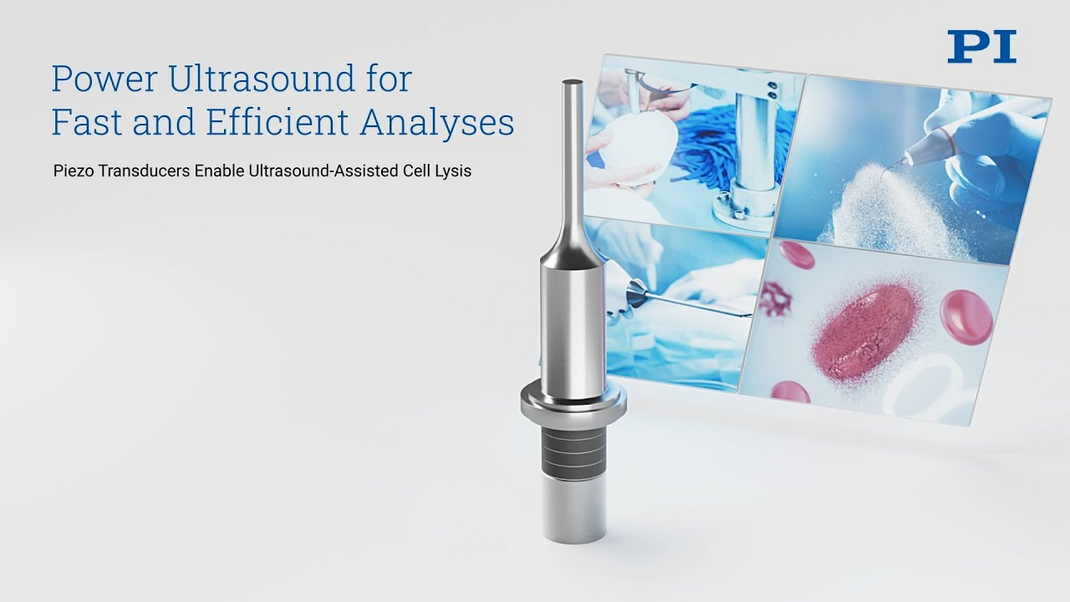In in-vitro diagnostics (IVD) analysis processes, sample preparation is a critical step. It must be conducted as precisely, quickly, and contamination-free as possible, preferably directly within the analysis device. Cell lysis or cytolysis is a common part of routine sample preparation in medical or biotechnological laboratories. This is the targeted breaking up and destruction of cell membranes, e.g., of blood or stem cells, to release their inner biomolecules, such as DNA, mRNA, or organelles. This can also provide access to pathogens inside the cells, such as viruses or bacteria. Gentle and efficient cytolysis is therefore required for the subsequent reliable analysis or sequencing of the biomolecules or for the diagnosis of diseases, such as infections, cancer, or autoimmune reactions. There are many different methods for cytolysis, one of which is ultrasound-assisted cell lysis. In this process, the cell membranes are destroyed via an ultrasonic probe inserted in a liquid sample. Piezoceramic components induce the probe to vibrate, creating ultrasonic waves in the fluid. This high-frequency pressure opens the cell membranes and releases the cell contents.
Compared to other lysis and extraction methods, opening cells using ultrasound offers many advantages:
- Non-invasive: Unlike chemical cell lysis which uses active ingredients, ultrasonic treatment does not require any direct contact with the cells, reducing the risk of contamination and preventing chemicals from affecting the samples inside.
- Precise: Ultrasound allows for the precise control of the degree of cell lysis since the intensity, frequency, and duration of the ultrasonic treatment can be varied.
- Efficient: The method can process several samples at the same time, e.g., on a microtiter plate, and is therefore more efficient than other methods.
- Fast: Cell lysis and extraction using ultrasound is a fast method that can be used to break up cells within seconds.


